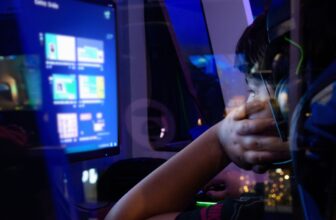
Digital Detox: How Tech Addiction Is Changing User Behavior
In today’s hyperconnected world, our smartphones, laptops, and social media accounts are always within reach. While technology has made life more convenient, it has also introduced a growing problem: tech addiction. From endless scrolling on social media to constant notifications and emails, digital dependency is reshaping the way people behave, interact, and even think.
As more research emerges, experts are warning about the long-term consequences of tech overuse, and many are turning to digital detoxes—intentional breaks from screens—to regain control. This blog explores how tech addiction is changing user behavior and why a digital detox may be the key to healthier habits.
The Rise of Tech Addiction

Smartphones and digital platforms are designed to capture attention. Infinite scrolling, push notifications, and algorithm-driven feeds keep users engaged longer than intended. Studies show that the average person checks their phone over 100 times a day, often without even realizing it.
Tech addiction isn’t limited to social media. Gaming, online shopping, and streaming platforms contribute to compulsive digital behavior. The result is a shift in how people allocate time, prioritize activities, and even communicate with others.
Changes in User Behavior
1. Shorter Attention Spans
With constant notifications and multitasking, users struggle to focus for extended periods. Tasks that require deep concentration, like reading a book or working on complex projects, are increasingly difficult. Many people now expect instant gratification, whether it’s in information, entertainment, or social interaction.
2. Sleep Disruption
Late-night scrolling and blue-light exposure have disrupted sleep patterns worldwide. Tech addiction has contributed to delayed sleep onset and poor sleep quality, affecting mood, productivity, and overall health.
3. Social Behavior Shifts
Paradoxically, while technology connects people globally, it can erode real-world social skills. Face-to-face conversations are often interrupted by device use, and many individuals feel anxious when disconnected from online networks. Over time, this can lead to feelings of isolation and a preference for virtual interaction over in-person connections.
4. Impulse Spending and Decision Fatigue
Digital platforms make it easy to buy, subscribe, or click impulsively. Algorithms target users with personalized ads, encouraging compulsive spending. This, combined with constant digital input, can lead to decision fatigue, reducing the ability to make thoughtful choices.
What Is a Digital Detox?
A digital detox involves intentionally limiting or completely avoiding digital devices for a set period. The goal is to break the cycle of compulsive use, reduce stress, and reclaim time for meaningful offline activities.
Digital detoxes can vary in intensity:
- Short-term: A few hours or a day without screens.
- Extended: Week-long breaks from social media or digital devices.
- Partial detox: Limiting specific apps, notifications, or device usage during certain hours.
Benefits of Digital Detox
- Improved Focus and Productivity: With fewer distractions, users can concentrate better on work or hobbies.
- Better Sleep: Reducing nighttime screen exposure helps regulate sleep patterns.
- Enhanced Mental Health: Stepping away from curated online content can reduce anxiety, comparison, and stress.
- Stronger Relationships: Spending more quality time offline strengthens real-world social connections.
- Mindful Technology Use: Digital detox encourages users to assess their tech habits and set healthier boundaries moving forward.
Tips for a Successful Digital Detox

- Start with small, manageable periods without your phone or social media.
- Set device-free zones at home, like the bedroom or dining area.
- Turn off non-essential notifications to reduce interruptions.
- Engage in offline activities: reading, walking, or cooking.
- Reflect on the benefits and track how your mood, focus, and sleep improve.
Final Thoughts
Tech addiction is reshaping user behavior in profound ways—from attention spans and sleep patterns to social interactions and purchasing habits. While technology is an invaluable tool, its overuse can negatively impact our mental, emotional, and physical well-being.
A digital detox is not about rejecting technology altogether; it’s about reclaiming control, creating balance, and using devices mindfully. By taking intentional breaks, users can reset their habits, improve their quality of life, and engage more meaningfully with the world—both online and offline.
In a society that never stops scrolling, a little digital silence might be the key to true clarity and well-being.








